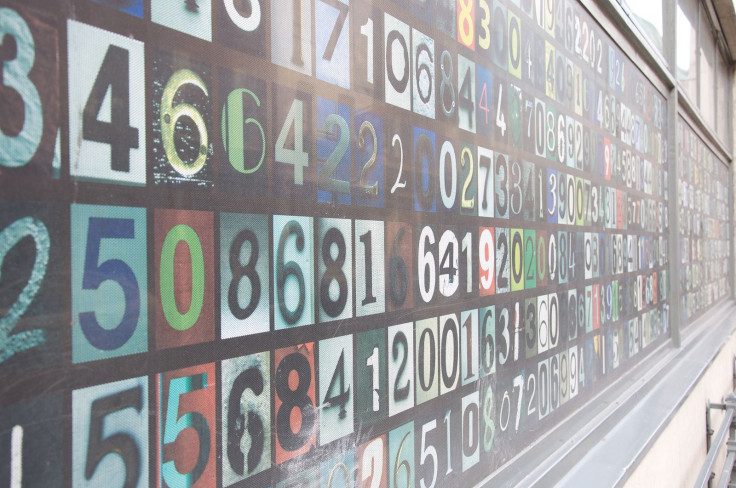Brain Training For Everyday Life: How To Stop Forgetting And Live More Fully

Just for fun, remember this string of numbers: 42285971. Now picture your bedroom from childhood. Behold the color of the walls, the print of the bedspread, the layout of the furniture. Chances are you can do this without much effort. Now imagine you’re strolling through the rest of the house, and consider just how vivid the details you’re picturing are. Welcome to your memory palace.
Most people don’t have a need for memorizing long strings of numbers or entire decks of playing cards. These feats belong to the world of memory champions (yes, they exist). Most people only care about remembering who they just met or what’s on their shopping list. Or, more deeply, they care about staving off dementia and other mental illness — diseases that rob people of their autonomy by depleting them of their remembered pasts. Indeed, if only we could preserve our life experiences a little longer, we could retain more of what makes us who we are.
A Palace Of Numbers
Back to the bedroom. In Joshua Foer’s 2011 exploration of human memory, Moonwalking with Einstein, the author quickly discovers the elegance and strength of a well-stocked memory palace. If you want to remember a shopping list, for instance, as his coach made him do, the trick is to bring absurdity into the mundane. If your shopping list calls for a pound of bacon, picture a buff strip of bacon struggling to lift a measly 1-pound dumbbell. And repeat all the way down the list. As you walk through your memory palace, drop each absurd representation somewhere along the way. When you need to recall the objects, they will be right where you left them.
That’s how Foer found himself remembering to buy pickled garlic, cottage cheese, peat-smoked salmon, six bottles of white wine, three pairs of socks, three hula-hoops, a snorkel, a dry ice machine, and email his friend Sophia, along with half a dozen other tasks, all without ever putting pen to paper. Instead of struggling to remember the items individually — a rote chore that is sure to end in frustration — he easily remembered the exaggerations. From there the items came naturally.
Memory palaces aren’t the only strategy. While they tend to work for remembering objects or to-do lists, sometimes we want to remember phone numbers and people’s birthdays. For that, scientists say we should chunk.
Chunking, the process of grouping items together in bundles rather than as lone items, makes use of the psychological quirk that humans can only remember seven or eight things at a time. (Still remember that number from before?) Some people may fail at six or nine, but repeated tests have demonstrated that most participants tend toward this average. In 1980, a famous study conducted at Florida State University found the chunking technique allowed a volunteer, dubbed SF, to expand his capacity for memory from seven numbers to 79. How? SF ran track, and he turned four-digit numbers into race times, so that “4318” became 4:31:8, and so on, until 20 months of practice expanded his capacity 10-fold.
As Foer points out in his book, chunking becomes even more helpful when the strings getting chunked grow in size. For instance, we don’t think of phone numbers as 10 random digits. We chunk them into a system of 3-3-4. We can expand on this by considering entire phone numbers as a single chunk. The deeper our memories can nest one chunk into another, the more stuff we can cram into our brains.
Memory palaces and chunking generally arrive as a package deal. Many of the top memory athletes — Foer included, toward the end of his journey — rely on both techniques simultaneously. Essentially, each digit up to 9 gets assigned an image, and depending on where the number appears in its respective chunk, say the number 492, the images associated with each of the three digits form a brand new image. Then the athlete can tuck that image away in their memory palace somewhere next to the previous one, and almost magically a boring string of numbers becomes an unforgettable scenario, available for recall whenever the person wants it.
Making Life Meaningful
Both methods rely on the same psychological principle, namely, that memory thrives on uniqueness. The average office worker can attest to one day seamlessly sliding into the next, until an entire uneventful year feels like a single fleeting moment. On the other hand, a year jam-packed with thrilling adventures stands out — it feels longer. That’s because our perception of time “hooks” onto meaningful moments. It may sound like a tautology, but we really do remember things because they are memorable, and not the other way around.
Today, more than five million people in the U.S. suffer from Alzheimer’s disease. More troubling, a full third of adults over 85 are afflicted. But if the science of memory can offer anything past a party trick, it’s that regular brain training — that is, forcing yourself to remember something instead of writing it down — preserves mental health as we age. Few of us strive to be memory champions, but the spirit of the discipline should make us think twice about automatically outsourcing our shopping lists.
Like a muscle that gets worked out, the complicated brain at least reveals its willingness to grow. At the end of Moonwalking with Einstein, Foer concedes that for all his training, his working memory isn’t necessarily stronger overall; he still forgets where he puts his keys. What did change was his appreciation for the limits of memory, or lack thereof. A little attention each day can mean the difference between one day forgetting your own name and looking back on a life full of riches.



























